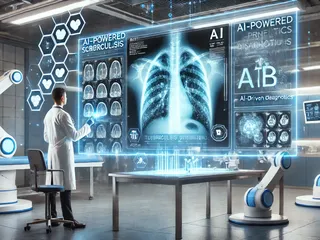Artificial intelligence (AI) is a broad field of computer science dedicated to creating systems capable of performing tasks that typically require human intelligence. These tasks include learning, reasoning, problem-solving, perception, and natural language understanding.
Types of AI
AI systems can be categorized in several ways, including:
- Narrow or Weak AI: Designed for a specific task, such as playing chess or recommending products. Most current AI systems fall into this category.
- General or Strong AI: Hypothetical AI with human-level intelligence and the ability to perform any intellectual task that a human being can. This type of AI does not yet exist.
- Super AI: Hypothetical AI that surpasses human intelligence in all aspects.
Key Concepts in AI
- Machine Learning (ML): Algorithms that allow computers to learn from data without explicit programming.
- Deep Learning (DL): A subset of machine learning that uses artificial neural networks with multiple layers to analyze data.
- Natural Language Processing (NLP): Enables computers to understand, interpret, and generate human language.
- Computer Vision: Allows computers to "see" and interpret images and videos.
Applications of AI
AI is transforming numerous industries, including:
- Healthcare: Disease diagnosis, drug discovery, personalized medicine
- Finance: Fraud detection, algorithmic trading, risk management
- Transportation: Self-driving cars, traffic optimization
- Retail: Personalized recommendations, customer service chatbots
Ethical Considerations
The development and deployment of AI raise important ethical questions regarding bias, privacy, job displacement, and accountability.
For further reading, consider exploring resources like:























